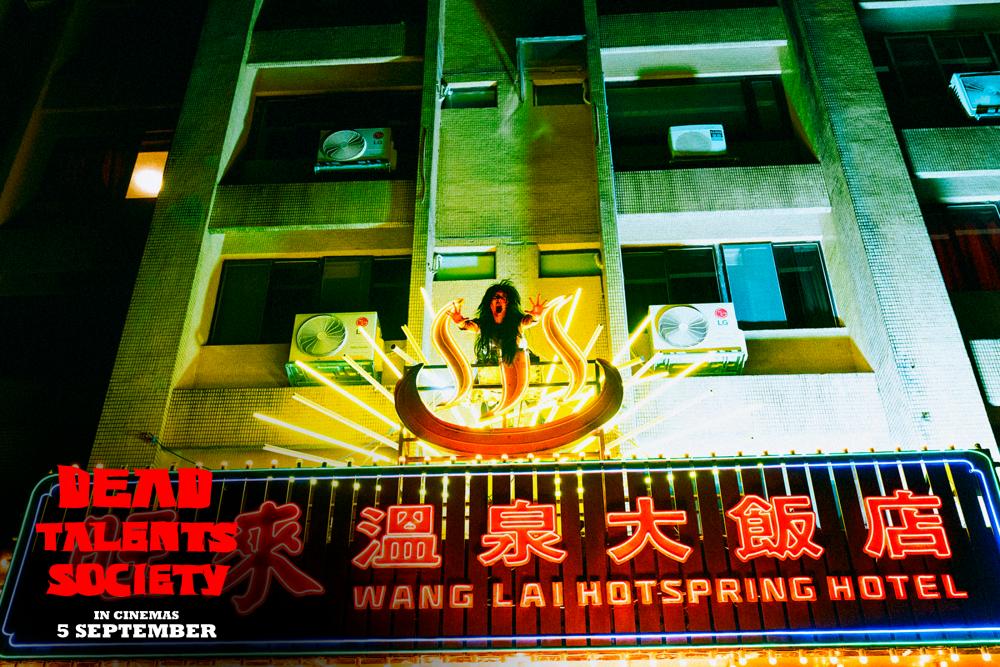IN the vibrancy of Taiwanese cinema, Dead Talents Society stands out as a film that manages to be both hilarious and deeply resonant. Directed by John Hsu, the film is an extraordinary blend of horror and comedy that takes audiences on a journey into the afterlife, where ghosts are not just spooky, they are downright competitive.
With a stellar cast including Chen Bolin, Sandrine Pinna, Gingle Wang and Eleven Yao, this release reinvents the genre with a fresh perspective on death, life and the enduring desire to be remembered.
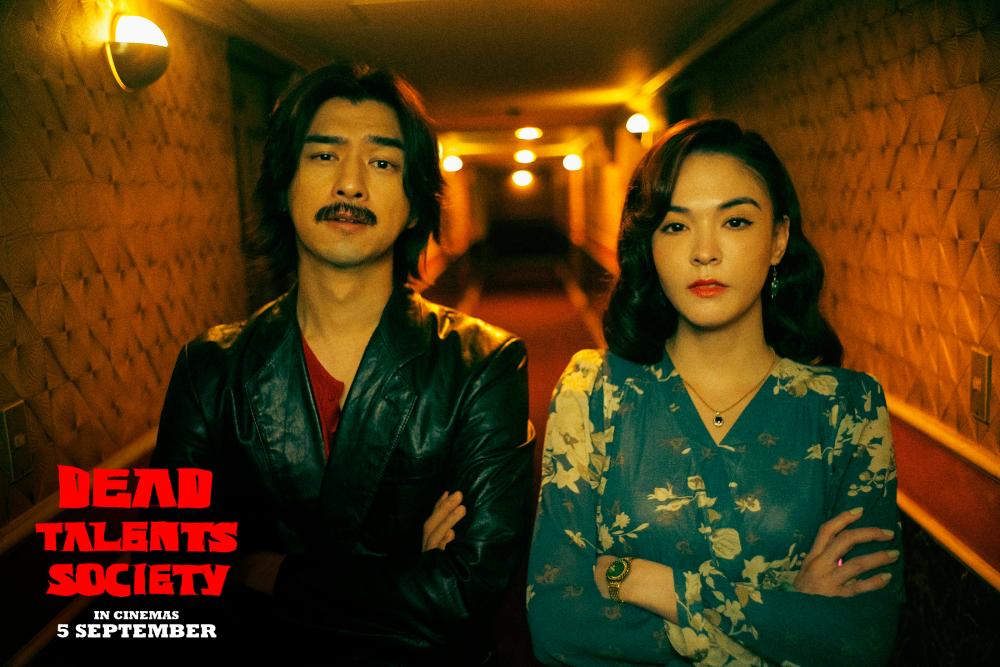
Afterlife reimagined
Set in a fictional underworld, Dead Talents Society introduces viewers to a world where being a ghost is not just about scaring the living, it is about making a name for yourself in the most spectral way possible.
The film’s protagonist, a meek and newly deceased teen known only as the Rookie (played by Wang), is thrust into this competitive environment with only 28 days to make her mark before she fades into oblivion. Her journey from an unremarkable ghost to a haunting sensation is as much about personal growth as it is about perfecting her scare tactics.
What makes Dead Talents Society particularly charming is its fresh take on the horror-comedy genre. While the premise could easily have been played for cheap laughs, Hsu infuses the film with a sense of warmth and wit that elevates it beyond mere parody.
The film’s humour is sharp, but never at the expense of its characters, who are fully realised and relatable, despite being, well, dead.
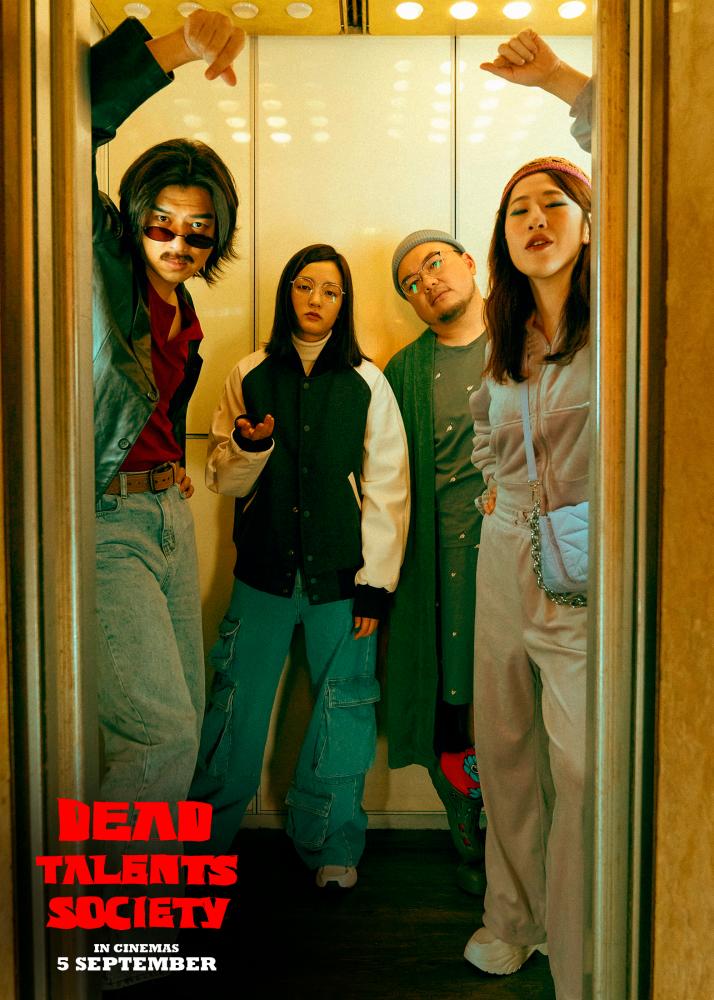
Cultural touchstone
At its core, Dead Talents Society is a film deeply rooted in Chinese culture, particularly in its exploration of the afterlife and the societal pressures that persist even beyond death. The film tackles themes of success, failure and the fear of being forgotten with a deft hand, using humour to soften what could otherwise be a bleak commentary on the human condition.
The underworld depicted in the film is a bustling, bureaucratic nightmare, where ghosts must continually prove their worth to avoid being erased from existence.
The film’s portrayal of the afterlife is both whimsical and haunting, filled with quirky characters and elaborate set pieces that reflect the richness of Chinese culture. Yet, it is the film’s ability to blend these cultural elements with universal themes of ambition and self-worth that makes it resonate with a wide audience.
The ghostly characters are driven by the same desires and insecurities that plague the living, making their struggles both humorous and poignantly relatable.
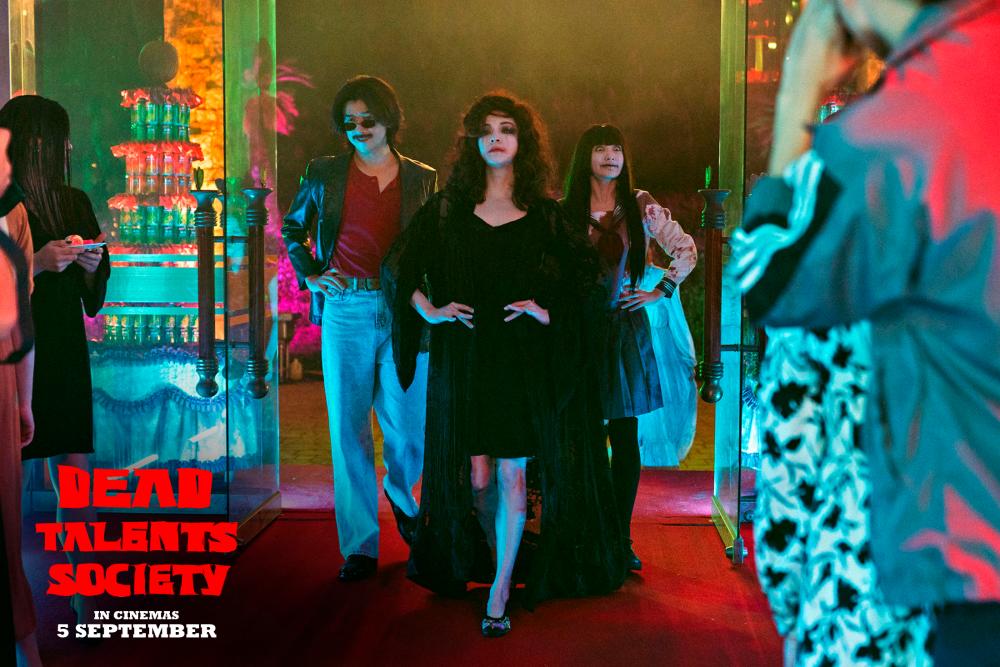
Showcase of talent
The cast of Dead Talents Society delivers standout performances across the board. Wang shines as the Rookie, capturing the character’s vulnerability and determination with a subtlety that makes her journey all the more engaging.
Pinna as Catherine, the washed-up diva of the underworld, is both fierce and funny, embodying the highs and lows of a star past her prime with aplomb. Bolin’s portrayal of Makoto, an agent who is as shifty as he is charming, adds another layer of complexity to the film, making him a perfect foil for the Rookie’s earnestness.
Yao’s Jessica, the film’s antagonist, is the epitome of the ghostly diva as her rivalry with Catherine and the Rookie is both hilarious and tension-filled, driving much of the film’s narrative. The dynamic between these characters is proof of the film’s sharp writing, which balances humour and horror in a way that feels both natural and surprising.
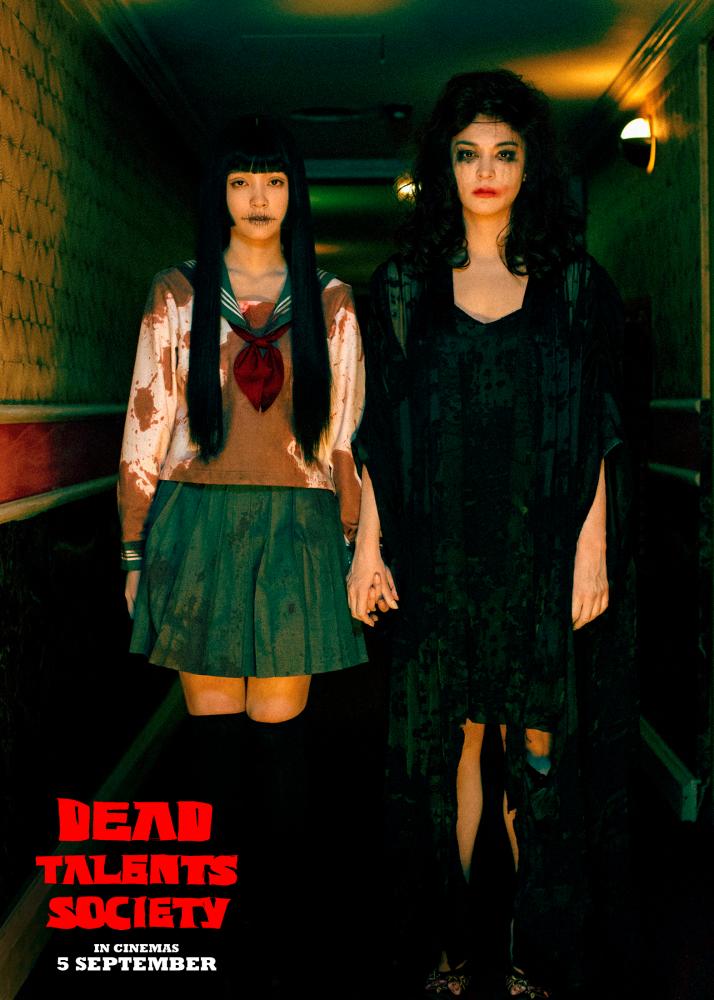
Horror, but make it fun
While Dead Talents Society is undeniably a horror film, it does not rely on cheap scares or excessive gore to make its point. Instead, it uses its horror elements to explore deeper themes of identity, purpose and legacy. The film’s horror is often more psychological than physical, with the characters’ fears and insecurities manifesting in both humorous and terrifying ways.
This is horror reinvented, a fresh take that uses the genre’s conventions to tell a story that is as heartwarming as it is chilling. The film’s setting in the Wang Lai Hotel, with its eerie atmosphere and ghostly residents, is the perfect backdrop for the characters’ supernatural antics.
Yet, even as the film delivers on the scares, it never loses sight of its comedic roots, ensuring that the audience is laughing as much as they are gasping.
Visual and auditory feast
Hsu’s direction ensures that Dead Talents Society is as visually striking as it is narratively engaging. The film’s production design is a standout, with the underworld and the Wang Lai Hotel brought to life in vivid detail. The use of colour, lighting and special effects adds to the film’s otherworldly atmosphere, creating a space that is both familiar and fantastical.
The film’s score, composed by Hsu’s long-time collaborator, complements the visuals perfectly, blending traditional Chinese instruments with modern sounds to create a soundtrack that is both haunting and playful. The music enhances the film’s emotional beats, whether it is the Rookie’s moments of introspection or the film’s more intense, horror-filled sequences.
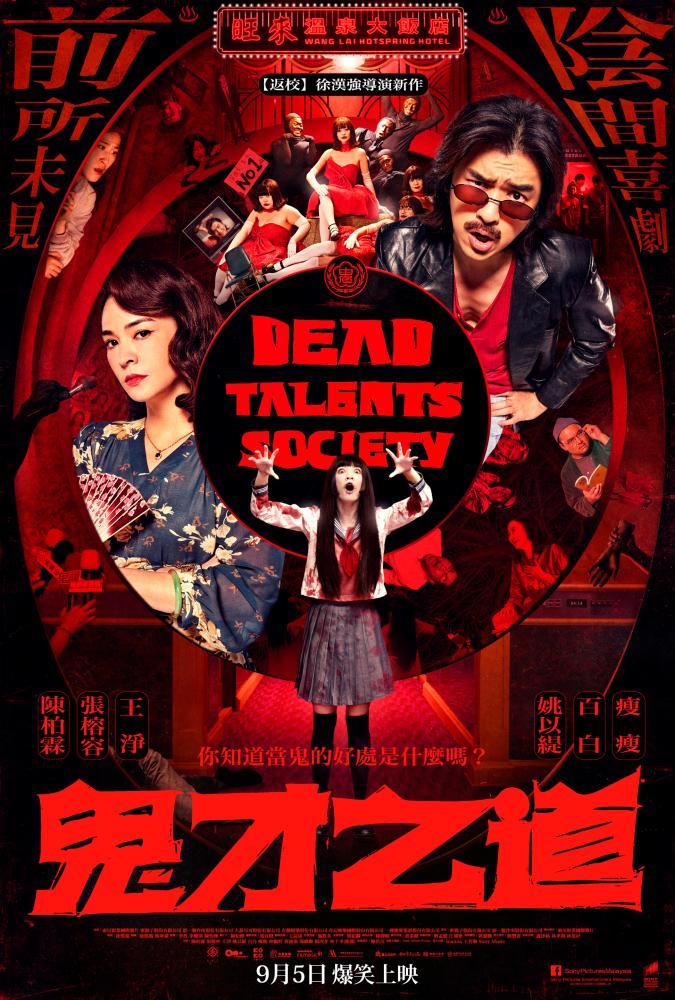
A fresh perspective
Dead Talents Society is a film that charms in every aspect, from its clever script to its memorable performances. It is a film that defies expectations, using humour to explore serious themes in a way that is both entertaining and thought-provoking.
This is a film that redefines what horror can be, proving that it is possible to scare, entertain and move an audience all at once. Dead Talents Society is proof of the power of storytelling, reminding us that even in the afterlife, there is always room for a good laugh and maybe a little bit of terror.
Dead Talents Society is in cinemas.
DIRECTOR: John Hsu
CAST: Chen Bolin, Sandrine Pinna, Gingle Wang, Eleven Yao, Ching-i Pai, Soso Tseng, Nina Ye
E-VALUE: 8/10
PLOT: 8/10
ACTING: 8/10



